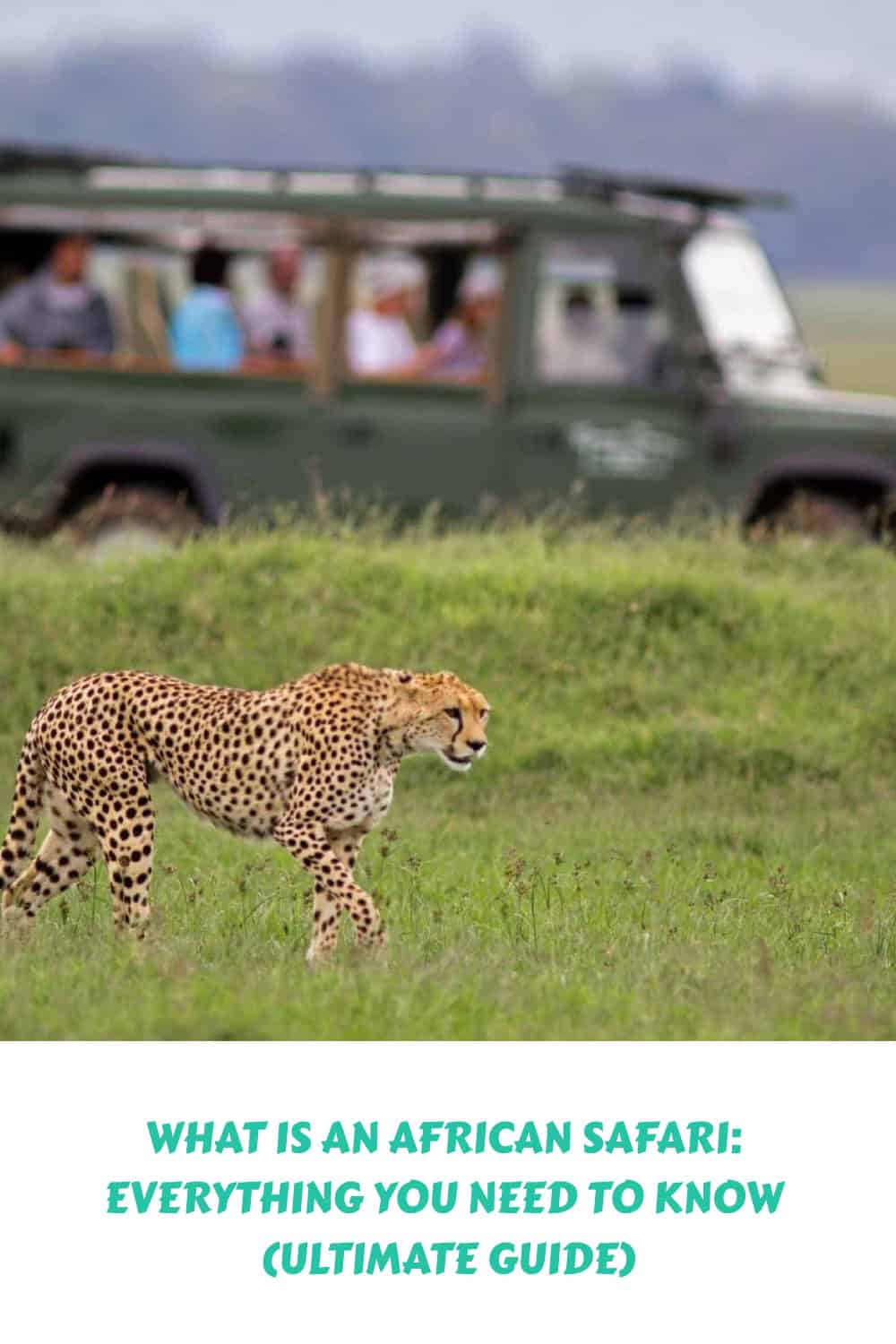What is an African safari? We hear all about African safari and today we’ll explore everything about African safari.
An African safari is an overland journey specifically aimed at observing and enjoying wildlife in its natural habitat. Rooted in the Swahili word for ‘journey’, a safari takes you deeply into the ecosystems of eastern and southern Africa, offering a close look at the diversity of wildlife that Africa has to offer.
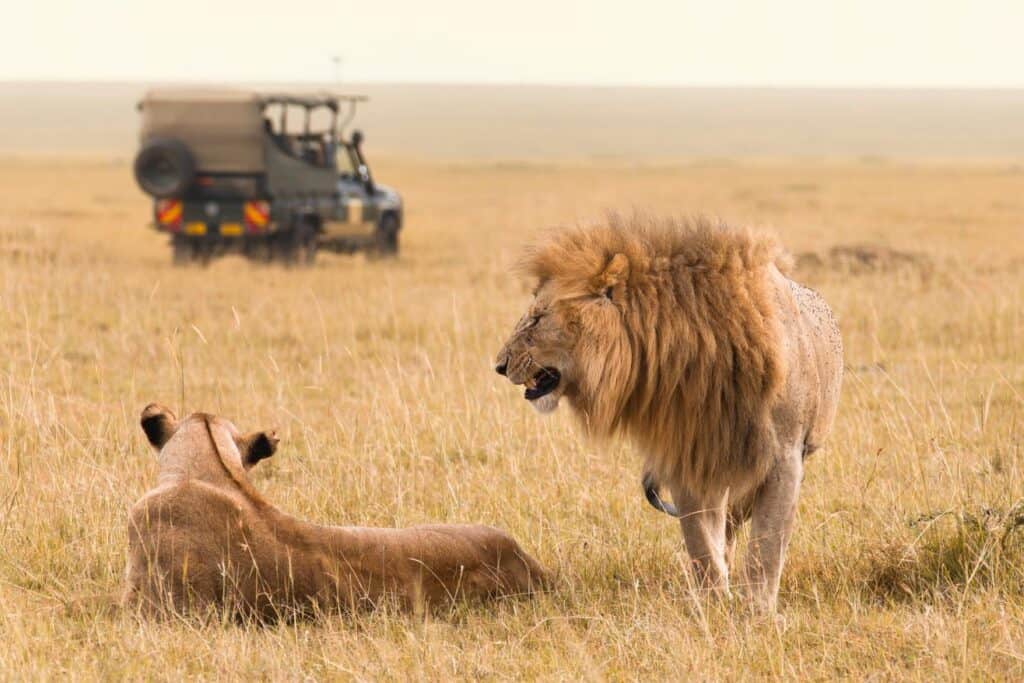
An African safari offers a once-in-a-lifetime chance for most people to see and experience the famed Big Five to the countless other species that make up the intricate web of the African wilderness.
Planning your trip means deciding on the type of safari that’s right for you, whether it be a guided tour in a 4×4 vehicle, a walking safari led by experienced trackers, or a bird-watching expedition for a quieter, yet equally rewarding experience.
Your accommodations could range from luxury lodges to tented camps, each providing a different level of comfort and immersion into the wild.
The best times and places for a safari often depend on seasonal wildlife migrations and regional climate patterns, making research a crucial step in crafting your perfect adventure.
🤔 What is an African Safari: Understanding African Safaris
When you think about an African safari, picture yourself in the heart of the wilderness. Imagine vast landscapes filled with wildlife wandering in their natural habitat. It’s not just a trip; it’s a chance to connect with nature.
What to Expect:
- See animals like elephants, lions, and buffaloes in the open.
- Enjoy the scenery of parks and reserves away from city life.
Types of Safaris:
- Traditional Safari: Follow guided tours in a vehicle.
- Walking Safari: Explore on foot for a different view.
- Self-Drive Safari: Take the wheel for a more personal journey.
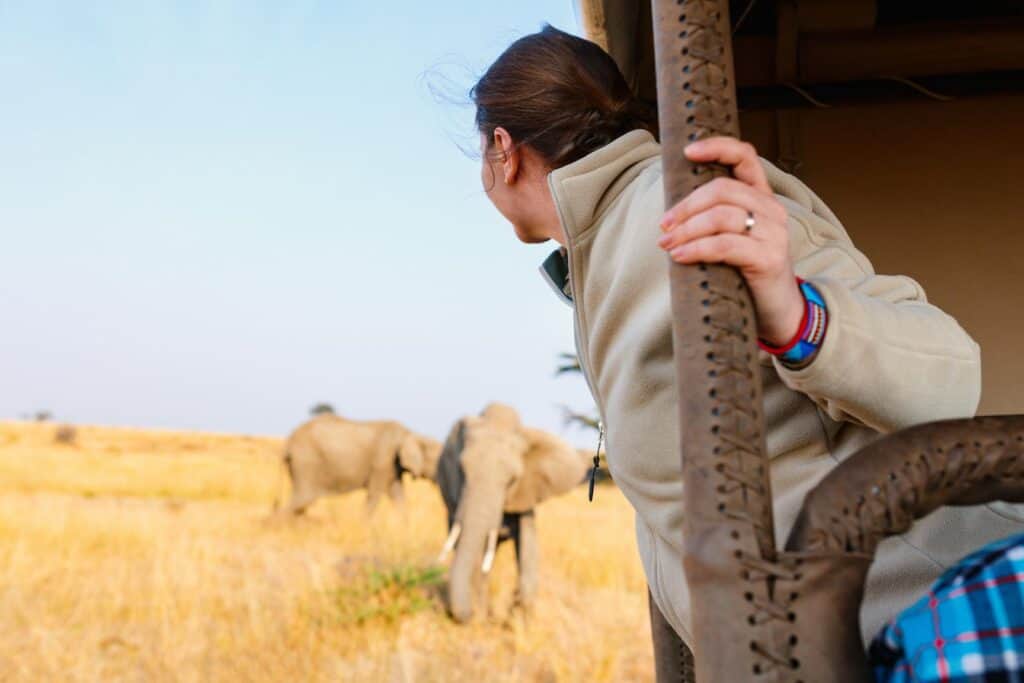
To ensure you have the best safari experience, research is key. Each country offers a unique perspective of the African wilderness. South Africa, for example, is perfect for first-timers thanks to its developed tourist infrastructure.
Choosing the Best Safari for You:
- Consider what wildlife you want to see. Check where the ‘Big Five‘ roam.
- Think about comfort levels. Choose lodges or tented camps according to your taste.
- Look at the duration and depth of the safari. Some can last a few hours, others span days.
Get ready for an adventure that puts you right alongside Africa’s wildlife. Remember, every safari is different. Your dream safari should reflect your interests and what you wish to get out of the experience.
🗺️ What is an African Safari: Planning Your African Safari
When you set out on an African safari, it’s crucial to choose your type of safari, book the journey, and understand the costs involved.
🔍 Choosing the Right Safari
Each African safari is unique. Consider what you want to experience, whether it’s the thrill of The Big Five, the Great Migration, or gorilla trekking. Research safari types from game drives to walking safaris and pick one that suits your interest and fitness level. Africa’s vast landscapes from Kenya to Botswana each offer different wildlife and scenery.
📅 Booking Your Adventure
Once you’ve chosen a safari, it’s time to book it. Work with reputable safari operators or travel agents specializing in African travel. Ensure they have good reviews and sustainable travel practices. Booking should be done months in advance, especially if you’re targeting peak seasons to witness specific wildlife events like the migration.

💵 Budgeting for the Trip
Cost is a big factor when planning your African safari. Averages range from $150 per night for budget camping to higher-priced luxury accommodations. Remember to account for daily guide tips of about $5-$10 per person and a general staff pool tip.
Check out our article on safari costs to get a better feel for the minutiae of things to consider when planning. Also, make sure to include travel insurance when planning your safari costs.
Exchange rates can affect your budget, so keep an eye on them as you plan.
🕒 Best Times and Places
When you’re planning a safari, picking the right time and place is key. Your experience will vary greatly depending on the season and the destination you choose.
🌦️ Seasonal Considerations
East Africa: The best time to visit East Africa for safaris is from June to October. It’s during this period that you can witness the Great Migration in the Masai Mara or Serengeti National Park. These are dry months, making wildlife easier to spot as they gather around water sources.
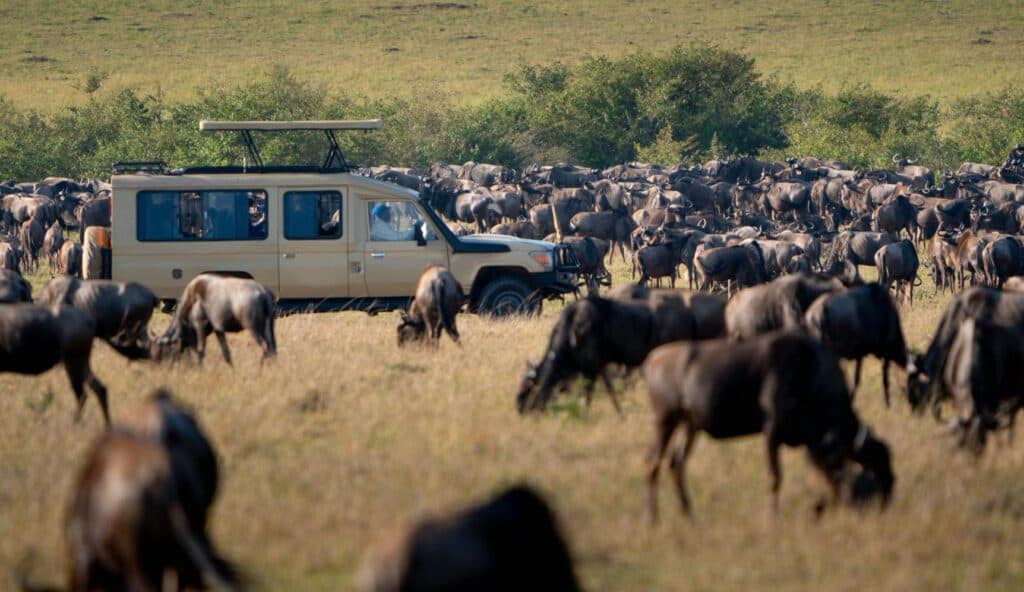
Southern Africa: In Southern Africa, countries like Botswana and Zambia also have their peak safari season between June and September. The Kruger National Park in South Africa offers great wildlife viewing during the cooler, dry months of May through August.
📍 Top Destinations for Safari
- Masai Mara, Kenya: Best for the wildebeest migration from July to October.
- Serengeti National Park, Tanzania: Home to the Great Migration and ideal to visit from June to October.
- Ngorongoro Crater, Tanzania: Offers year-round wildlife viewing with February to March for the calving season.
- Kruger National Park, South Africa: Fantastic for game viewing from May through August.
- Victoria Falls, Zambia/Zimbabwe: Though not a typical safari, it’s a must-see natural wonder with the best views from May through August.
Remember to consider the migration patterns and climate to decide where and when to go. Each destination has its own charm that can give you a unique safari adventure.
🐘 What is an African safari: Types of Safaris
When you think about an African safari, images of wildlife and rugged landscapes might fill your head. You’ll find there are various ways to experience these scenes, each offering a distinct angle from which to observe Africa’s natural beauty.
🚙 Game Drives
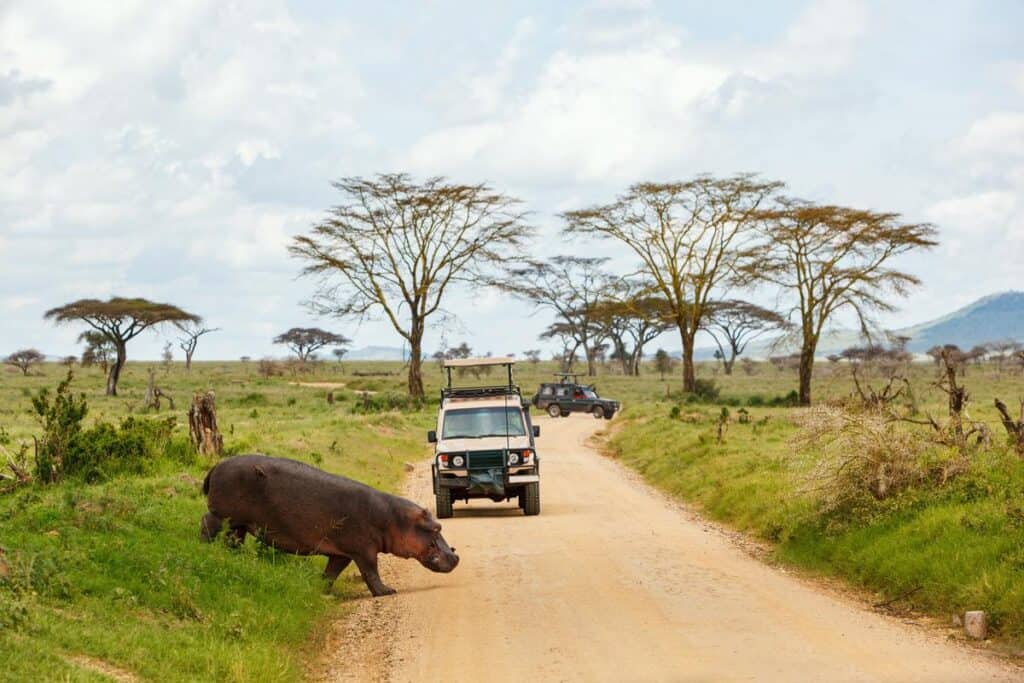
Game drives are the backbone of any safari experience. They happen in a safari vehicle, which is often an open 4×4 that allows for excellent viewing and photo opportunities. You can set out on these adventures in game reserves throughout Africa.
- Morning game drives get you out into the bush as the animals begin their day.
- Night drives offer a chance to see nocturnal creatures and unique behaviors not viewed during the day.
🚶♂️ Walking and Boat Safaris
Walking safaris connect you directly with the African wild. Led by experienced guides, you’re likely to focus more on the smaller wonders and learn about the ecosystems. Don’t worry; there’s still a good chance of encountering larger wildlife at a safe distance.
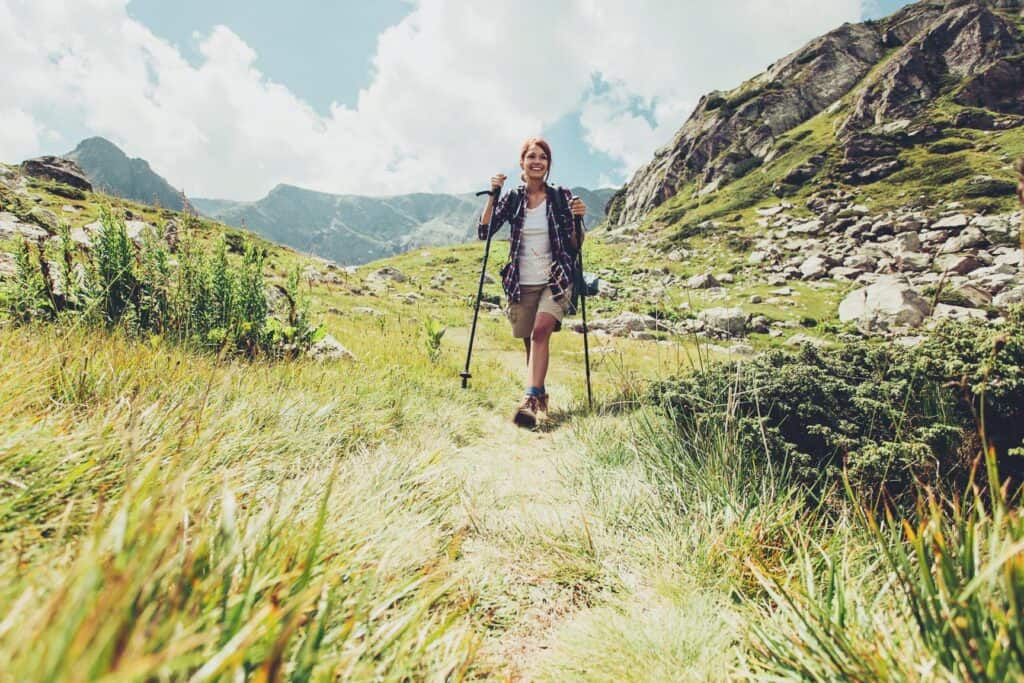
Boat safaris take you along rivers and deltas, such as the Okavango. Imagine gliding past hippos and crocodiles or watching elephants at the water’s edge.
- These safaris give you a serene avenue to appreciate the aquatic side of wildlife viewing.
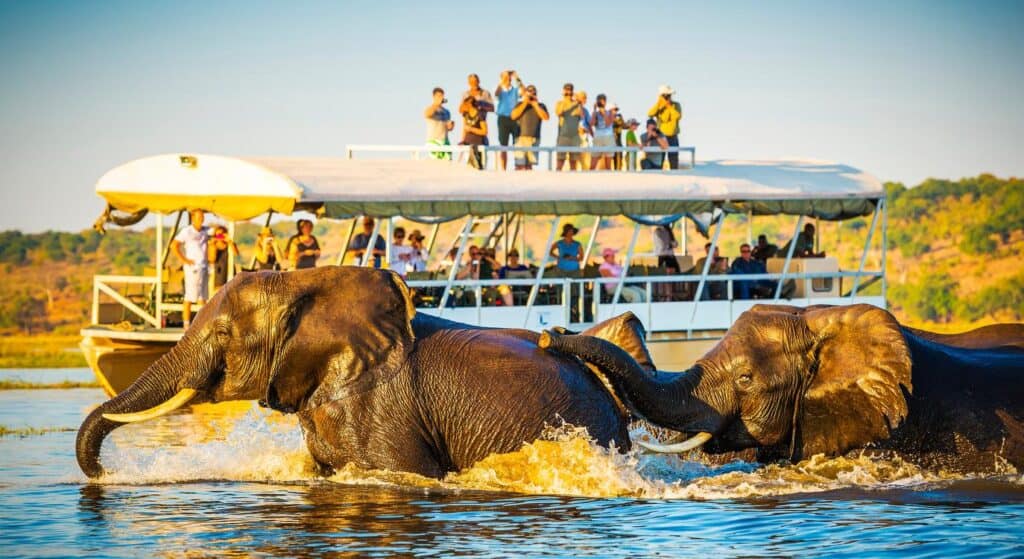
Each type of safari offers a unique perspective and memories that’ll last a lifetime. Choose one that calls to you and dive into the wonders of Africa.
🏠 What is an African safari: Safari Accommodations
When you’re planning a safari, your accommodation choices range from lush luxury lodges to immersive camping experiences.
🛌 Choosing Your Comfort Level
If you’re looking for comfort and exclusivity, luxury lodges are your go-to. They often sit in private concessions, offering a quieter, more intimate safari. You’ll enjoy spacious rooms, fine dining, and often a private plunge pool. Not to forget the guided safaris that come with staying at such a premium spot.
For a classic safari vibe, you might opt for tented camps. These blend the outdoor adventure with creature comforts like cozy beds and en-suite bathrooms. You’ll hear the sounds of the wild right outside your tent.
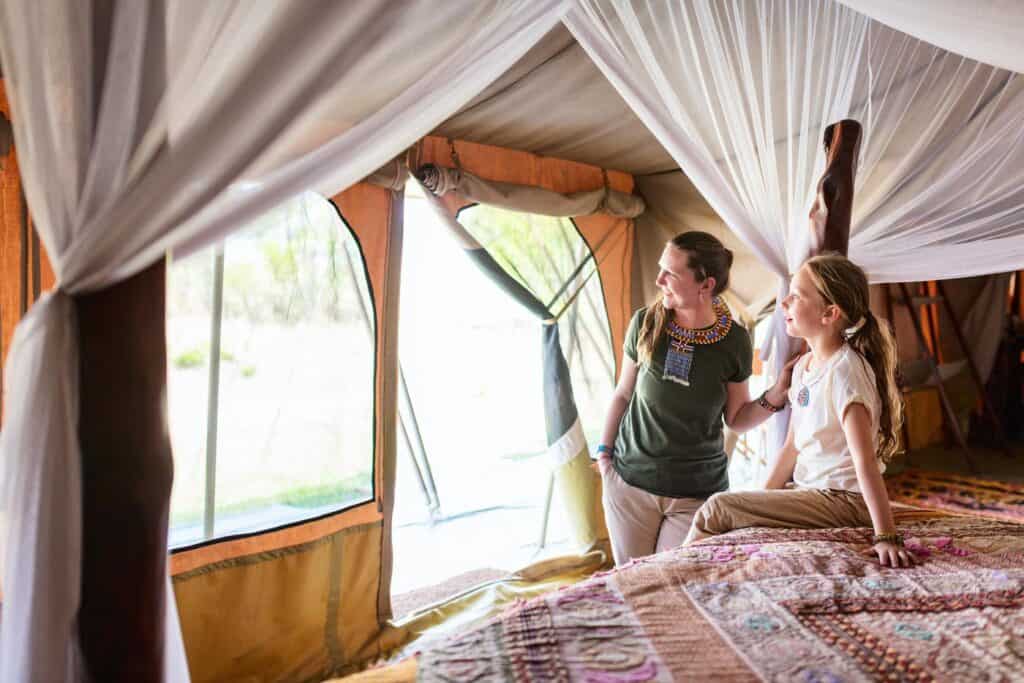
Camping is your most direct route to nature. Pitch a tent and fall asleep under the stars. Just remember, it’s the most basic option, with shared facilities and self-catering. But if you’re an adventure-seeker, this is authentic safari living.
🛡️ What is an African safari: Staying Safe and Healthy
When you’re ready to set out on an African safari, your safety and health are key. African safaris are safe adventures when you follow the right guidelines. First, always ensure you have comprehensive travel insurance. This will protect you against unexpected incidents and provide peace of mind.
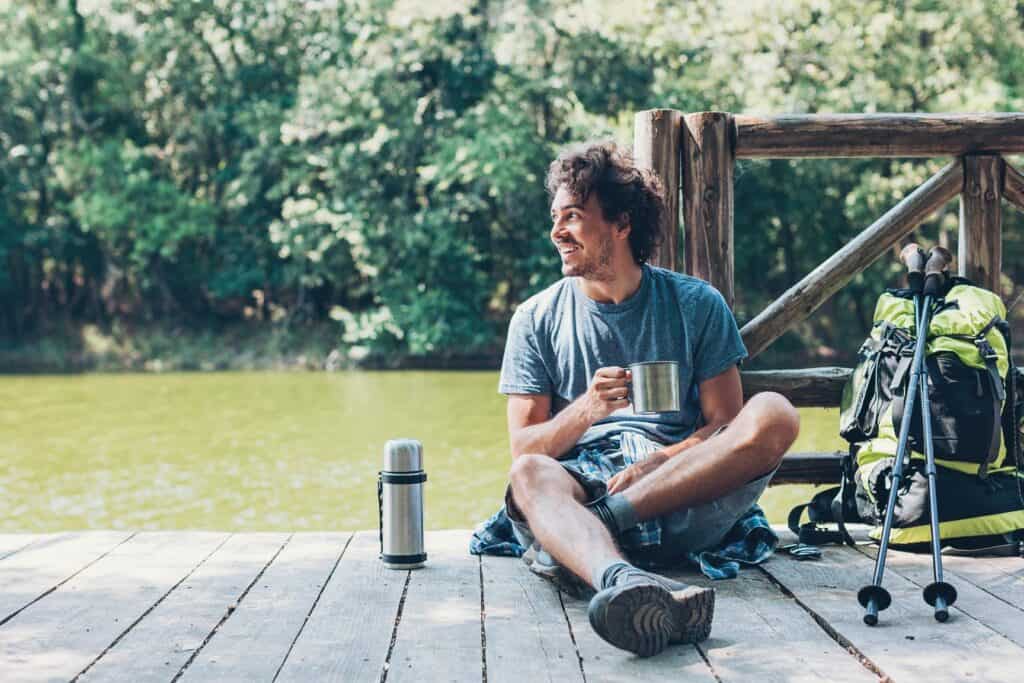
Safe Distances to Maintain:
- Elephants: 50 meters (about 164 feet)
- Lions: At least 20 meters (about 65 feet)
- Rhinoceroses: Keep a 30-meter (about 98 feet) buffer
- Buffaloes and Leopards: Stay at least 20 meters (about 65 feet) away
Remember to drink lots of water to stay hydrated. Be cautious, use bottled water for drinking and brushing your teeth. Listen to your guide; they’re there to keep you safe.
Keep your distance from animals, especially those with young, as they can be unpredictable.
If you’re self-driving, never approach animals too closely. An ideal safe distance is a minimum of 20 meters from large game.
Finally, guard against diseases like Malaria by using mosquito repellent and taking prescribed preventative medications. Safaris should be nothing but thrilling memories, so take these precautions seriously and you’ll have a safe, incredible experience!
🦁 What is an African safari: Wildlife and Conservation
African safaris offer an intimate look at some of the world’s most fascinating wildlife. Your journey contributes to conservation efforts that are vital for wildlife conservation and survival.
🦓 Encountering Africa’s Wildlife
When you’re on safari, you’re in the front row to witness the incredible variety of Africa’s wild animals. Picture lions lazily resting in the savanna sun, or herds of elephants moving gracefully through the brush. Safari brings you face-to-face with the continent’s majestic big cats, elusive wild dogs, and even the awe-inspiring mountain gorillas. Keep your camera ready; you might also spot a gazelle sprint or a giraffe’s slow stroll, moments often shared by National Geographic stories.
🌱 Conservation Efforts
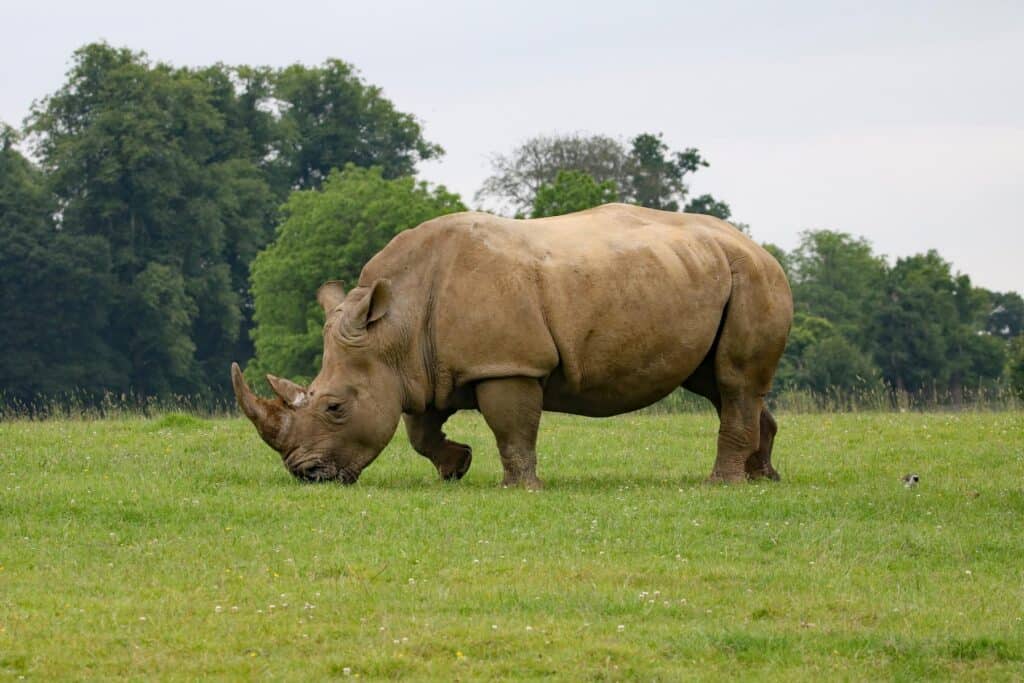
Your safari adventure supports wildlife conservation. Across Africa, parks and reserves work tirelessly to protect endangered species and their habitats. Let’s break it down:
- Endangered Species: Lions, rhinoceroses, and cheetahs
- Conservation Activities: Anti-poaching patrols, habitat preservation, community education
- Community Involvement: Empowering locals with jobs and sharing the benefits of ecotourism
By choosing eco-conscious safaris, you help ensure these wild places thrive. Every safari guest becomes a direct supporter of projects that keep Africa’s ecosystems balanced and rich with life.
🤝 What is an African safari: Cultural Experiences
When you think of an African safari, you might picture wild animals and vast landscapes. However, an essential part of your journey will be engaging with the cultural heritage and local communities.
🌍 Local Communities and Traditions
Meeting local people adds depth to your safari.
Masai Mara, Kenya: Here, you can visit local villages, particularly the Maasai communities. These semi-nomadic people are known for their distinctive customs and dress. They welcome visitors to share in their daily life.
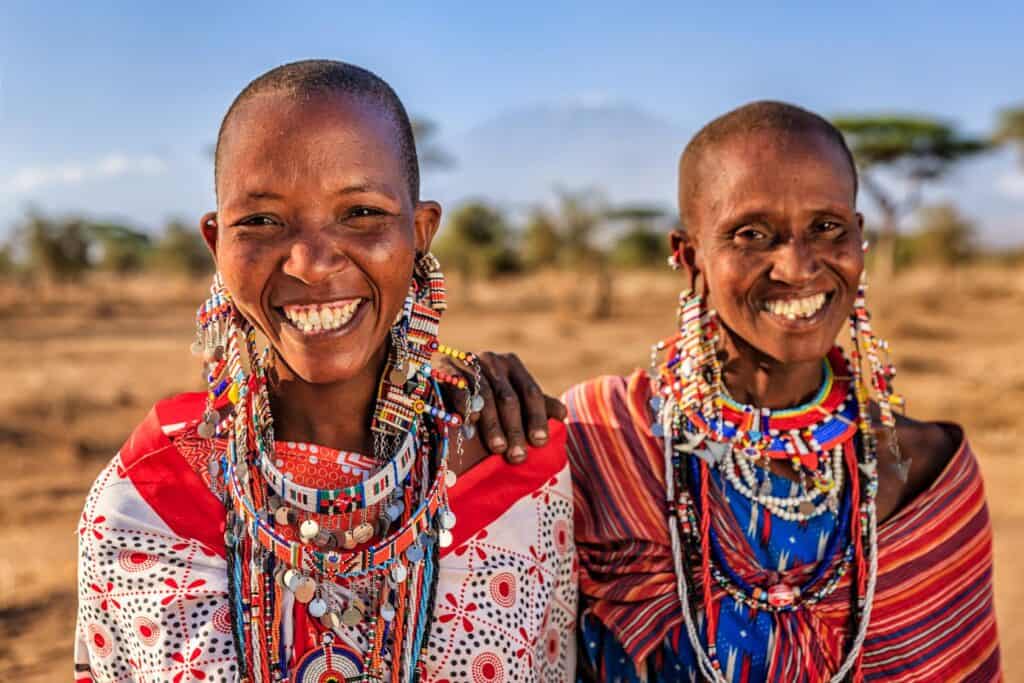
- Activities might include:
- Dance performances
- Craftsmanship demonstrations
- Storytelling sessions
Local Villages: You’ll find that each community has unique traditions. These are woven into the fabric of life across the continent.
- You can discover:
- Community markets
- Artisan workshops
- Culinary traditions
Local communities are the soul of Africa. When you visit, you’re not just a spectator; you’re invited to participate. Remember to always approach these experiences with respect for the local cultures and customs while learning what is an African safari.
✈️ What is an African safari: Logistics and Travel Tips
When you plan your African safari, knowing how to navigate your arrival and the logistics of travel within Africa is essential. Here’s how to make your journey smooth and enjoyable.
✈️ Getting There and Around
Your adventure usually begins at a major international airport, where direct flights to Africa are available from various parts of the world.
Once you arrive, traveling between reserves and national parks often involves taking small planes. This not only saves time but gives you a spectacular aerial view of the landscape. The following table breaks down the travel options:
| Method of Travel | Purpose |
|---|---|
| Direct Flights | Arrival to African mainland |
| Small Planes | Transfers between safari destinations |
📜Visa and Entry Requirements

Before you depart, check the specific visa requirements for the country you’re visiting.
Most African safari destinations will either require a visa upon arrival or beforehand. Ensure your passport is valid for at least six months from your arrival date to meet entry conditions. Carry your travel documents, such as a Yellow Fever vaccination card and a COVID-19 vaccination card, if applicable.
You want to familiarize yourself with the CDC Health Information for International Travel (Yellow Book). This is a comprehensive guide for staying healthy and safe while traveling internationally. It’s published twice a year and contains current health guidelines, pretravel vaccine recommendations, and destination-specific advice.
Here’s a quick list to keep in mind:
- Passport Validity: Must be at least six months
- Visa: Check if required in advance or on arrival
- Vaccination Cards: As needed based on destination regulations
By preparing these aspects in advance, you set yourself up for a hassle-free and unforgettable African safari experience.
🌿 What is an African safari: Environmental Impact and Etiquette
When you set off on an African safari, your actions can touch the natural environment and wildlife. Safaris are about responsibly embracing the wild. Here’s how you can make sure your adventure supports conservation efforts.
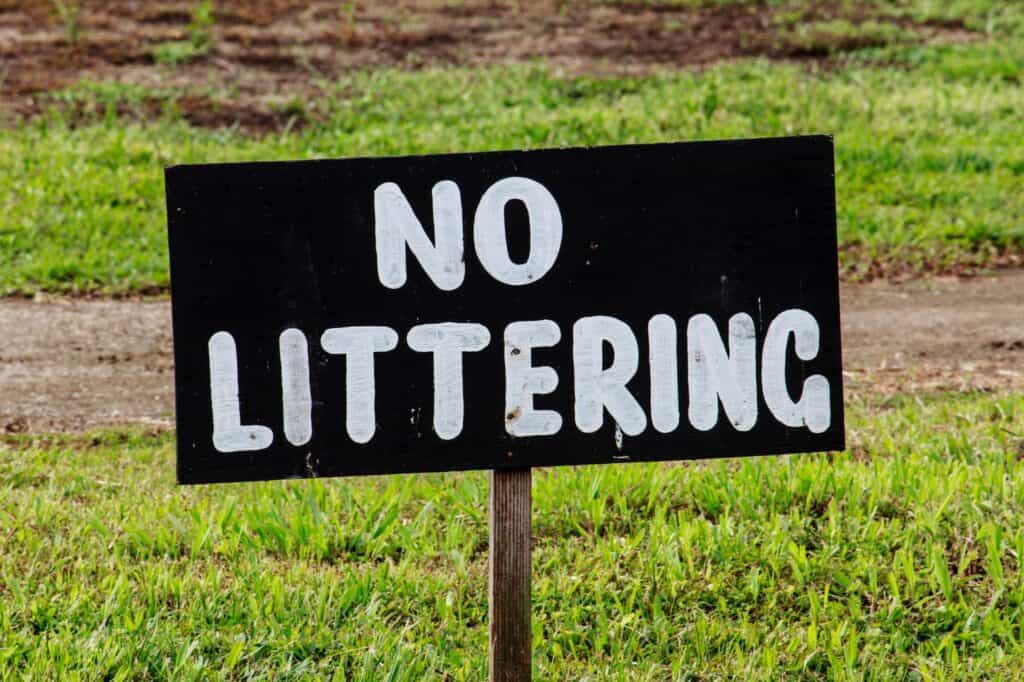
Be mindful of the wildlife. Remember, you’re a guest in their home. Stick to designated paths in wildlife reserves to avoid disturbing habitats. Quiet observation of animals in their natural routines is the goal. You want your impact on the landscape, safari trees, and wildlife to be minimalistic.
Follow your guide’s rules. Guides know the terrain and animal behavior. They’re there to keep you safe while protecting the ecosystem. Listen carefully and respect their instructions:
- Never feed the animals
- Stay inside your safari vehicle
- Keep noise to a minimum
Respecting animal space is key. Close encounters can stress them, so keep a safe distance. Photos are a great way to capture memories but don’t chase or corner wildlife for that perfect shot.
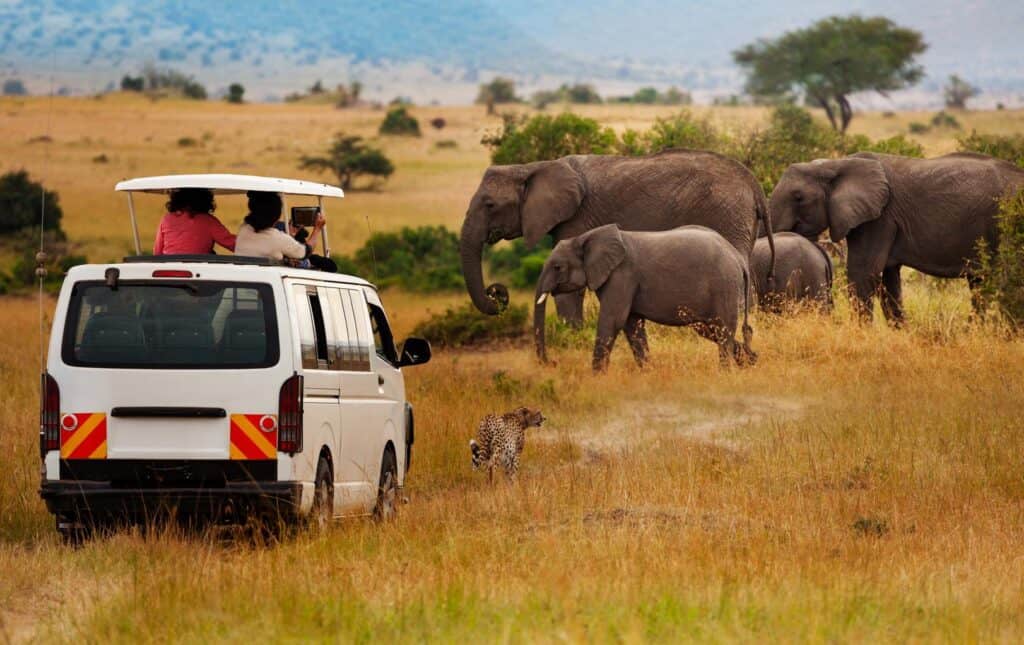
Leave no trace. Whether in private reserves or larger parks, bring out all your rubbish. Stash your snacks and wrappers away. Natural habitats stay pristine with your help.
Use resources wisely. Water is precious. Use what you need but conserve when you can during your safari tour. It’s all about balance.
Your safari can be magical without harming a leaf. Enjoy the wild and protect it for the next adventure-seekers. By following these simple tips, your experience will have a positive ripple effect while you get to learn what is an African safari. Happy and ethical travels!
❓ What is an African safari: Frequently Asked Questions
When planning an African safari, you likely have questions about what to expect. This section will help answer some of the most common questions.
🐾 What can you expect to see and do on an African safari?
On a safari, you’ll see wildlife like lions, elephants, and giraffes. You can go on game drives, take guided walks, and sometimes enjoy night-time excursions.
🏞️ What are some of the best destinations for an African safari?
Popular safari destinations include Kenya, Tanzania, and Botswana. Each location offers unique landscapes and wildlife viewing opportunities.
🎒 How should one prepare for an African safari adventure?
You should pack lightly with suitable African safari clothes for layering. Don’t forget essentials like sunscreen, a hat, and binoculars for up-close animal viewing.
Check out our articles on what to wear on safari and safari packing tips for more information.
🏡 What are the accommodations like on an African safari?
Accommodations range from luxury lodges to tented camps. You can experience comfort in the wilderness often with amenities like en-suite bathrooms and gourmet meals.
🔍 How do I choose a reputable African safari tour company?
Look for reputable safari tour companies with positive reviews and responsible tourism practices. They should have experienced guides and a record of safety and reliability.
👨👩👧 Are there child-friendly safari options available in Africa?
Yes, many safari tours offer family-friendly options. They provide educational activities and services tailored for young travelers.
